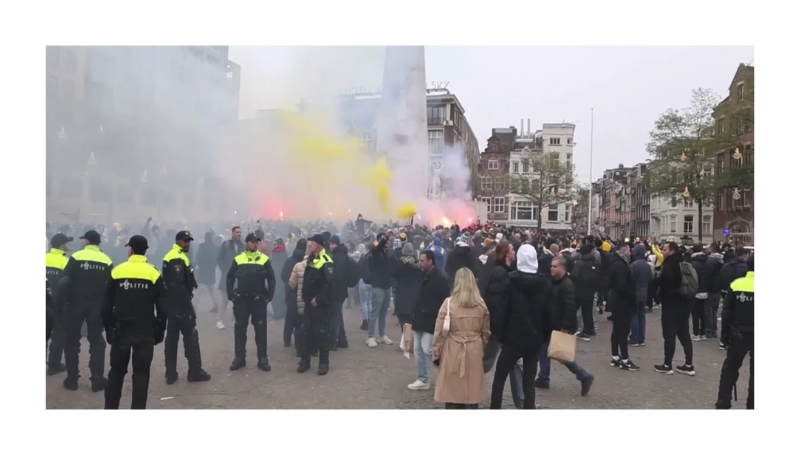Leon de Winter
WSJ, Nov. 8, 2024
“Since Oct. 7, 2023, these Moroccan youths have participated in weekly anti-Zionist demonstrators through the streets of Amsterdam.”
A lot has changed in Amsterdam since 1945, but some things remain the same.
During World War II, Amsterdam police, at the behest of German officers, hunted Jews. Today, the children and grandchildren of Moroccan immigrants are doing so. Some news outlets described the violence in Amsterdam as a confrontation between soccer hooligans, but that isn’t true. The fans of the soccer teams that played Thursday night—Maccabi Tel Aviv and the Dutch club Ajax Amsterdam—get along. Ajax’s connections to Judaism date back to the 1930s. The day before the match, fans of both clubs gathered in Amsterdam’s central square and sang the Jewish folk song “Hava Nagila,” which translates to “let us rejoice.”
The violence that erupted early Friday wasn’t due to tribal football hatred. It emerged from deep-seated, historically entrenched antisemitism.
Amsterdam is a relatively small city with about 920,000 inhabitants. No more than 10% of its population is Muslim, primarily from Morocco and Turkey. The first migrants from these regions were guest workers who arrived in the 1960s during the Netherlands’ postwar reconstruction. Once their work contracts expired, they stayed, bringing over their wives and children.
Small enclaves of Moroccan life have formed in the new western part of Amsterdam, south of the city’s busy harbor. In some streets, elderly men from the first wave of immigration head to coffeehouses and mosques dressed in traditional garb. When they arrived in the Netherlands, they were clean-shaven young men in Western suits. Now, returning to their cultural roots after a life of hard physical labor, they sport beards and clasp prayer beads.
… [To read the full article, click here]


